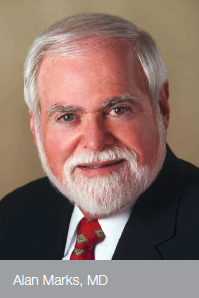 By Alan Marks, MD, and Mary Ann Chapman, PhD
By Alan Marks, MD, and Mary Ann Chapman, PhD
Despite major advances in cancer medicine (oncology), cancer remains a deadly disease, accounting for nearly 600,000 deaths in the US annually. For many years, the primary treatments for cancer have been surgery, chemotherapy, and radiation therapy. Over the past decade, medications have been developed that act directly on cancer cells to inactivate molecules that enable the cells to grow and replicate. These medications have been joined by immuno-oncology therapies, which do not act directly on cancer cells, but instead harness the body’s own immune system to fight cancer.
Prior to immuno-oncology therapies, no cancer treatment had ever significantly extended life for patients with advanced melanoma, a particularly deadly form of skin cancer. Based on this and similar reports, immuno-oncology therapy has been deemed a medical breakthrough that many believe will revolutionize cancer treatment. However, these therapies are costly and most patients cannot afford them—even with insurance. The lack of patient access to immuno-oncology therapies has stimulated debates about value in healthcare and how best to get these important therapies to patients who need them.

